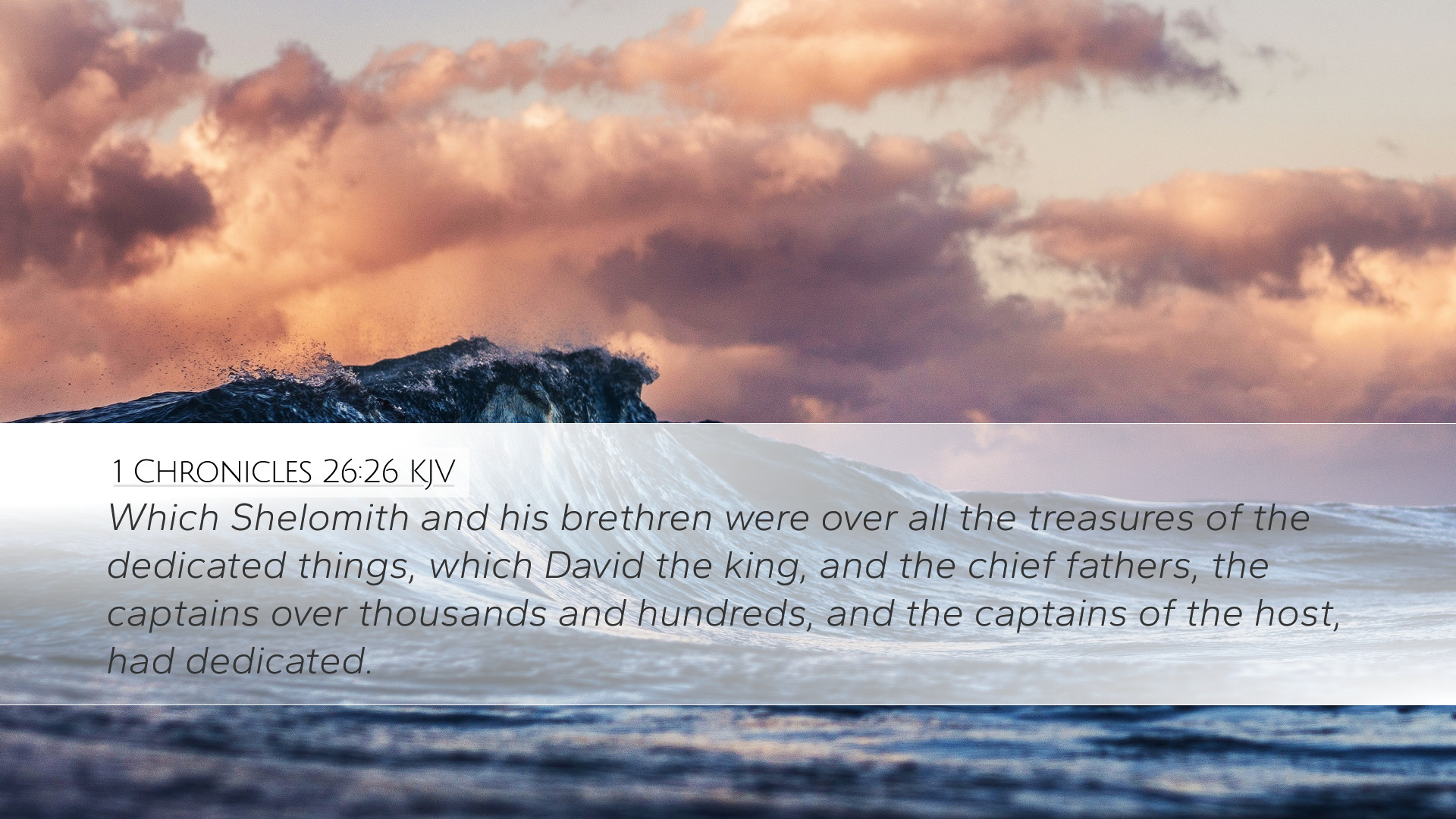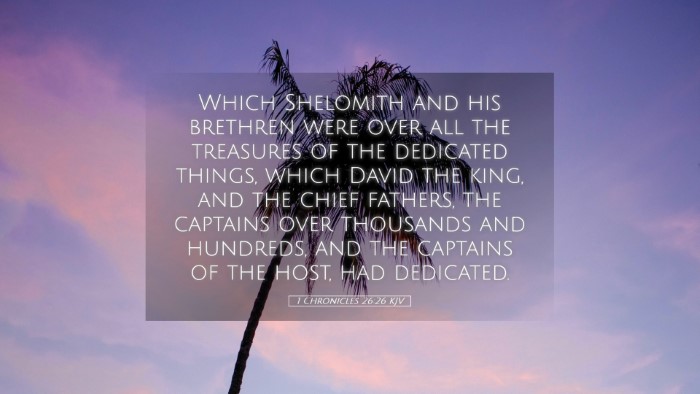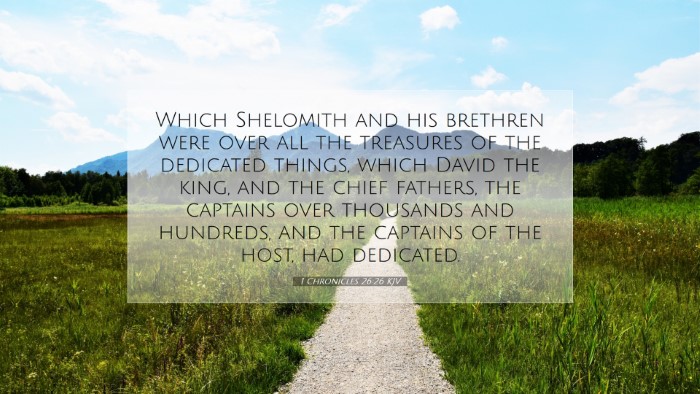Commentary on 1 Chronicles 26:26
Verse Reference: 1 Chronicles 26:26 - "Which Shelomith and his brethren were over all the treasures of the dedicated things, which David the king and the chief fathers, the captains over thousands and hundreds, and the captains of the host, had dedicated."
Introduction
The passage in 1 Chronicles 26:26 discusses the responsibilities associated with the treasures that were dedicated to the Lord by David and the leaders of Israel. This verse is pivotal in understanding how the post-exilic community organized worship and maintained their sacred treasures.
Contextual Background
In the historical context, this verse is part of a larger narrative detailing the organization of the Levites and other sacred functions during King David’s reign. The attention given to the dedicated treasures underscores the importance of stewardship in communal worship.
Commentary Insights
Matthew Henry's Commentary
According to Matthew Henry, this verse highlights godly stewardship as exemplified by Shelomith and his brethren. He notes that the treasures referred to in this context are not merely material goods, but represent sacred offerings dedicated to God. This suggests a dual focus on both the physical maintenance of these items and the spiritual significance they embody.
- Dedication to God: Henry emphasizes that the act of dedicating treasures to the Lord reflects a commitment to maintaining holiness and reverence in worship.
- Role of Leadership: The verse also points to the leadership of David and the key captains, reminding us that godly leadership involves accountability in handling God's possessions.
Albert Barnes' Commentary
Albert Barnes explains that this passage points to the arrangements that David established for the management of sacred objects. He notes that placing Shelomith in charge indicates a structured approach toward maintaining sacred things, which serves as a model for present-day church governance.
- Administrative Oversight: Barnes purports that the selection of Shelomith signifies the importance of capable and trustworthy individuals supervising the distribution and preservation of sacred items.
- Community Responsibility: He stresses that this not only deals with individual dedication but extends to a community that collectively holds responsibility for worship and service unto God.
Adam Clarke's Commentary
Adam Clarke highlights the significance of "treasures of the dedicated things," further explaining that these included offerings made for the service of the temple. Clarke elaborates on the practical implications of this verse in that it urges believers to consider their roles in supporting the ministry and sacred endeavors.
- Faithfulness in Service: Clarke suggests that the verse represents a call for faithfulness and integrity in the management of what has been dedicated to the Lord, encouraging modern-day believers to be diligent in their contributions.
- Historical Narrative: He connects this passage to the greater narrative of Israel’s history, illustrating how past practices of dedication can inform current principles of stewardship and community worship.
Theological Implications
This verse carries significant theological ramifications for both individual believers and congregations. The principles from 1 Chronicles 26:26 can yield several important lessons:
- Stewardship: The responsibility entrusted to Shelomith symbolizes the broader principle of stewardship that extends into today’s church structure. Every believer has something to contribute, be it prayers, finances, or service.
- Community Engagement: The collective dedication signifies a commitment to work together as a community. Each member plays a vital role, emphasizing interdependence in achieving communal goals.
- Holiness of Offerings: The emphasis on dedicated items illustrates the need to treat all contributions to the ministry with reverence, acknowledging that all we possess ultimately belongs to God.
Conclusion
1 Chronicles 26:26 serves as a rich resource for understanding the dynamics of worship, leadership, and stewardship in biblical history. As we reflect upon this verse, it prompts us to assess our dedication to God through our resources and roles in the community of faith. The lessons that emerge through the insights of Henry, Barnes, and Clarke encourage us towards a more profound commitment to foster a sacred environment and cherish our responsibilities as stewards of God’s gifts.


